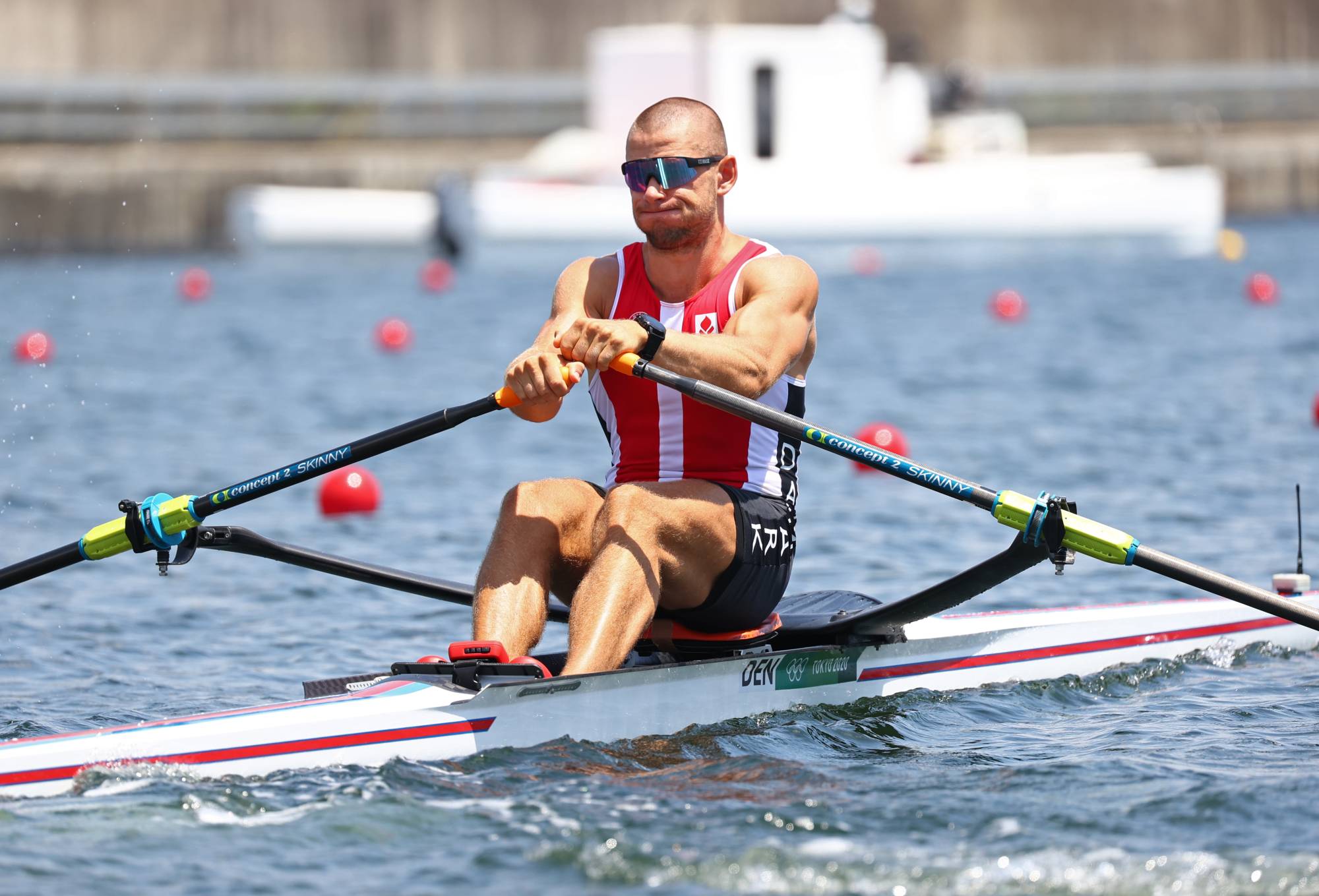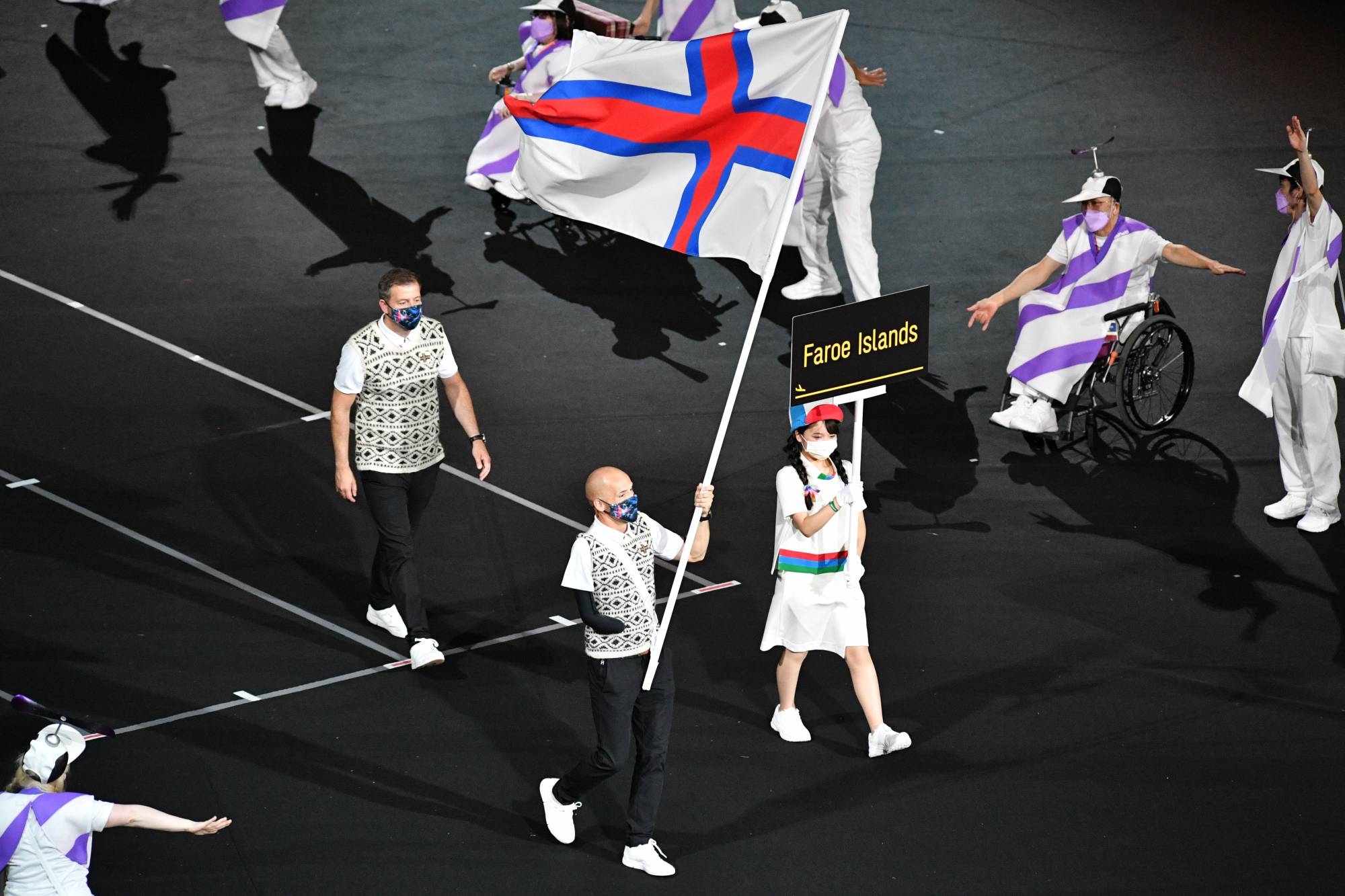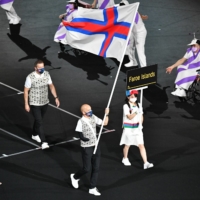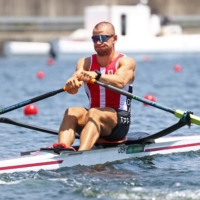When Havard Vatnhamar carried the flag of the Faroe Islands in the Parade of Nations during Tuesday’s Paralympic opening ceremonies, he became the latest to represent the tiny European territory in its 37-year history at the Games.
If Faroese athletes wish to participate in the same parade at the Olympics, however, they’re forced to do so under the Danish flag.
The self-governing archipelago, located midway between Norway and Iceland but part of the Kingdom of Denmark, is in the unique position of being recognized by the International Paralympic Committee but not the International Olympic Committee — something the nation’s sporting officials have sought to change for over 30 years.
Since the Faroese Confederation of Sports and Olympic Committee’s new board was elected in 2016, those efforts have turned into what Vice President Jon Hestoy describes as a “charm offensive.”
“We are very proud people. But we are very polite people,” Hestoy told The Japan Times last week. “And that is why we are running the most clean and friendly campaign you can imagine.
“Usually when these campaigns start, they build up a lot of razzmatazz, we have a meeting and everybody goes away. But we are the true amateurs, the true Olympians in the world. We have decided that this campaign will go on until we have our rightful Olympic recognition.”
The Faroes’ 779 islands and islets — 18 of which are considered major — boast a population of just over 53,000. A third of the population is registered to sports clubs, reflecting the country’s enthusiasm for athletic pursuits.
The territory has managed to join a dozen sporting federations — including soccer governing body FIFA and swimming regulator FINA — and participated in the Summer European Youth Olympics Festival for the first time in 2019.
IOC recognition however, remains an elusive prize. The Faroe Islands’ application for admission was accepted in January 1989, with promises to review it at the following year’s meeting of the IOC’s executive board.
Yet no decision was made on the Faroese application until 1996, when the IOC ruled that recognition of a national Olympic committee was contingent on its country’s recognition as an independent state.
This state of affairs has left the Faroe Islands on the outside looking in, even as territories in similar situations — such as Puerto Rico, Guam, and Macao — have continued to fly their own flag at the Olympics.
That comes despite a number of key endorsements for the Faroese efforts, including those from other Olympic committees in the region and even the Danish government.
“We have and have had for all these years, the 100% support and backing of the Danish Olympic Committee, the Danish government and most of the Nordic national Olympic committees,” Hestoy said.
“We would like as many people as possible to ask the question: Why is it that the Faroe Islands have international participation in 12 sports? Why is it that we have swimmers who have won medals in the world championships and in the European Championships? Why is it that this nation is not recognized by the IOC?”

The IOC’s refusal to accept the Faroese application has far-reaching effects beyond funding and more direct routes to Olympic participation.
The nation has often found itself unable to join international sporting federations that require IOC membership. Its anti-doping program — backed by the country’s parliament with a recently passed law — is unable to cooperate with the World Anti-Doping Agency, nor can Faroese athletes be regulated by Danish anti-doping authorities.
“Every argument we have regarding the Olympics and the Faroese situation is a circular argument,” Hestoy said. “It comes back to, ‘You cannot become a member (because) you cannot be recognized by the IOC.
“It's like hammering on a door: You're hammering and hammering, nothing happens, and suddenly something will happen.”
Two Faroese athletes competed for Denmark at the Tokyo Olympics — Johan a Plogv Hansen won a silver medal in men’s handball while rower Sverri Sandberg Nielsen finished an agonizing fourth in the single sculls rowing competition.
Their accomplishments were touted by Faroese Prime Minister Barour a Steig Nielsen, who said after the Olympics concluded that “the IOC really needs to rethink their policy and allow our athletes to represent their own flag.”
Vatnhamar, who will compete in the men’s T46 marathon, is proof of the Faroese spirit of perseverance in regard to the Games. The 45-year-old converted from his usual discipline — the triathlon — after the coronavirus pandemic canceled races across the world and made it difficult for him to qualify for Tokyo.
“It’s a big dream for me to be competing for the Faroe Islands,” Vatnhamar told The Japan Times. “It’s my biggest, and I have worked very hard for it — and had to change sports to come here.”
Wherever Vatnhamar finishes in the standings, his performance is sure to motivate a country that has enthusiastically supported all of its Paralympic participants, including four swimmers who racked up a total of 13 medals in the pool between the 1988 Games in Seoul 1988 and the 2004 Games in Athens.
“When you live on 18 islands with a total of 1,300 square kilometers in the middle of the North Atlantic, when you are united, you are extremely united,” Hestoy said.
“We are very happy about Faroese success. Everybody in every nation is like that, but I think we are even more than others. (Especially) because we are so aware of the problems in getting this recognition we would like to have.”





















With your current subscription plan you can comment on stories. However, before writing your first comment, please create a display name in the Profile section of your subscriber account page.